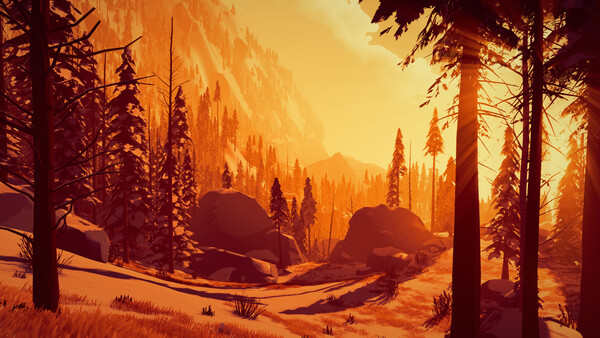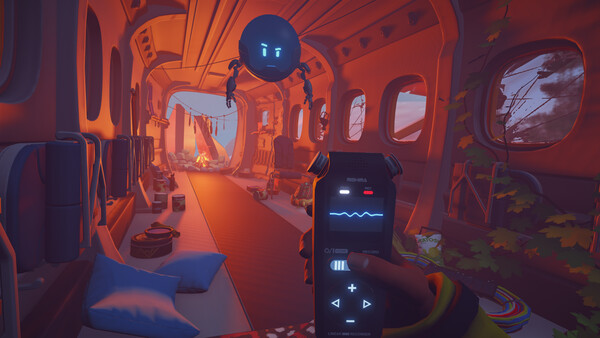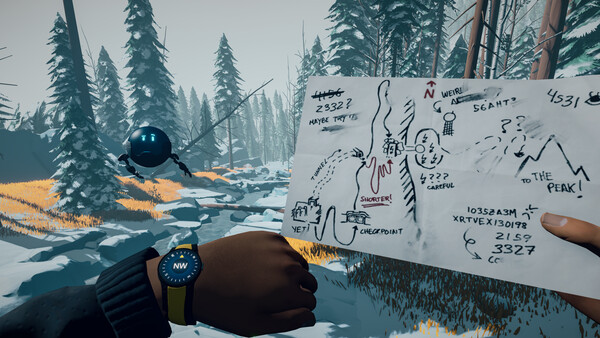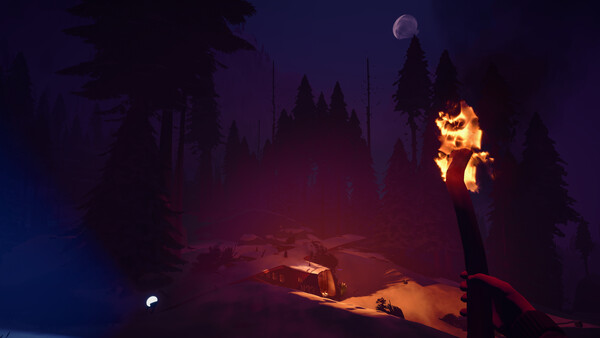Intro: A Familiar Tale in a New Setting
Over the past two decades, the world of gaming has evolved into something far greater than the stereotypes that once defined it. What was once seen as a mindless hobby, dominated by violence, simple mechanics, and shallow storytelling, has transformed into a medium that can carry the weight of human experience. Games now capture joy, grief, and every shade of emotion in between. For me, the beauty of this medium is that it forces us to confront the same uncomfortable truths that define our lives, and it challenges us to push forward even when the path seems impossible.
The journey of life, the sting of death, and everything in between become the colors on a canvas where the player is the artist. Arctic Awakening is a game that embraces this idea. It asks players to step into a story about loss, resilience, and survival against the odds. The question is: does it succeed in telling a story of hope in the face of insurmountable challenges, or does it fall into the tropes we’ve seen countless times before? Welcome to my review of Arctic Awakening.
Story: The Pains of the Past

You play as Kai, a pilot tasked with a routine supply run deep in the Alaskan wilderness. It’s presented in a quiet, almost serene way, baiting you into a false sense of security. Within a minute, that peace is shattered almost as quickly as it’s established. You’re introduced to Alfie, a quirky therapy drone assigned by the court to monitor Kai’s well-being and overall state of mind. Alfie’s job isn’t just to keep Kai alive, but to judge whether he is mentally stable enough to reunite with his children. It’s a bold choice for a companion character, because from the start, Alfie represents both sides of the coin – comfort and judgment. Before you can fully absorb their relationship, disaster strikes: the plane’s tail is ripped clean off midflight and the plane is hit with some sort of EMP. Kai, Alfie, and Donovan, a friend whose history with Kai is tense and unresolved, are forced to abandon ship. When Kai regains consciousness, Alfie is by his side but Donovan has disappeared, leaving you to begin a journey that is far more than just a search and rescue mission.
What follows is a story layered with equal parts mystery, emotion, and survival. On the surface, Kai’s goal is simple: find Donovan and survive the Alaskan cold. But as you and Alfie trek through the wreckage and into the wilderness, you quickly realize the world is hiding secrets. To describe much more would be to rob you of the surprises that give Arctic Awakening its power, but the game blends intimacy and unease in a way that reminded me of Firewatch mixed with the survival hopelessness of The Long Dark. Each new area feels both beautiful and threatening, pushing you to question what lies beyond the trees and what role Kai’s fractured past plays in the events unfolding. The Alaskan setting is more than just a backdrop – it’s a character in its own right, relentless and unforgiving, but also breathtaking in its design.

The relationship between Kai and Alfie is where the game truly shines. At first, Alfie is easy to dismiss as just another quirky robot companion, but the writing deepens he grows into something more. The hundreds of dialogue options you’re given allow you to treat him however you want. You can lean into sarcasm, anger, or compassion, and the game adapts in small but meaningful ways to how you react to him. I tried to be kind most of the time, but there were moments when lashing out felt right given Kai’s struggles. That flexibility makes the connection with Alfie feel authentic rather than scripted, and by the end, I was surprised at just how attached I had become to him. It’s rare for a game to make you genuinely care about a companion, but Arctic Awakening succeeds.
Gameplay: Simplistic and Effective

From a gameplay perspective, Arctic Awakening is relatively simple, which fits its narrative focus. There are light survival mechanics; making sure Kai is fed, rested, and mentally stable, but these elements serve more as thematic reinforcement than true obstacles. You won’t find combat or deep crafting systems here. Instead, the gameplay loop is built around exploration, puzzle-solving, and the conversations you have with Alfie. You’ll roam through the frozen wilderness, uncover secrets hidden in abandoned sites, pull switches, pick up key items, and engage in set-piece moments that bring cinematic flair to the experience much like other games, but you are usually just the witness as opposed to the cause. It’s not about skill or reflexes; it’s about presence. The game wants you to live in Kai’s world, to feel the cold, the fear, and the rare moments of warmth when hope cuts through the blizzard.
Controls are smooth and intuitive, inventory management is straightforward, and the sanity system is woven cleverly into the survival aspects. It doesn’t feel like a gimmick. Instead, it heightens the tension and constantly reminds you that Kai is human, fragile, and vulnerable in a place that doesn’t take kindly to strangers. The pacing across the 10_12 hour story is strong, and while some stretches of exploration may feel quiet, the narrative is always there to guide you forward.

What impressed me most about Arctic Awakening was its ability to balance despair with hope. Kai’s story is undeniably heavy. He’s grappling with the monsters of his past, and the constant struggle of survival seems intent on sending him deeper over the edge. Yet the game never becomes bleak for the sake of it. Instead, it frames each hardship as a step towards growth. Every small victory (whether it’s a moment of warmth with Alfie or a glimpse of light in the distance) feels deserved and rewarding. This balance keeps the experience engaging and meaningful rather than exhausting.
Visually, the game captures the beauty and menace of the Alaskan wilderness. Snow-drenched forests, icy rivers, and jagged peaks are brought to life with a painterly style that makes the world feel both real and dreamlike. Audio design is equally strong, with a score that swells at just the right moments and voice acting that delivers emotional weight without overacting. Alfie’s voice in particular is full of charm, humor, and sincerity, which is crucial given how central he is to the story.
Ending Thoughts: Narrative Driven Bliss
Arctic Awakening is a game meant to be loved. Its slow-burn pacing, meticulous attention to detail, and heartfelt writing tug at your emotions while offering the player a frozen playground to explore to their hearts content. Kai’s journey is rooted in pain, but it is also filled with moments of resilience and tenderness. Every day in the Alaskan wilderness feels like a blessing in disguise, and the game sells that idea beautifully. It’s not just about survival, it’s about finding meaning in struggle and connection in isolation.
In the end, Arctic Awakening feels worthy of standing alongside the titans of the narrative-driven genre. It doesn’t reinvent the formula, but it refines it with sincerity and focus. With its emotional storytelling, immersive world, and memorable companion, it’s an experience that will stay with you long after the credits roll. For players who loved Firewatch or The Long Dark, this is a must-play. For everyone else, it’s still a story worth braving the cold for.

Arctic Awakening releases on 18 September 2025, and it’s available on PlayStation 5, Xbox Series X/S, and PC.
The game was review on PC and we’d like to thank the developer and publisher for the code.




